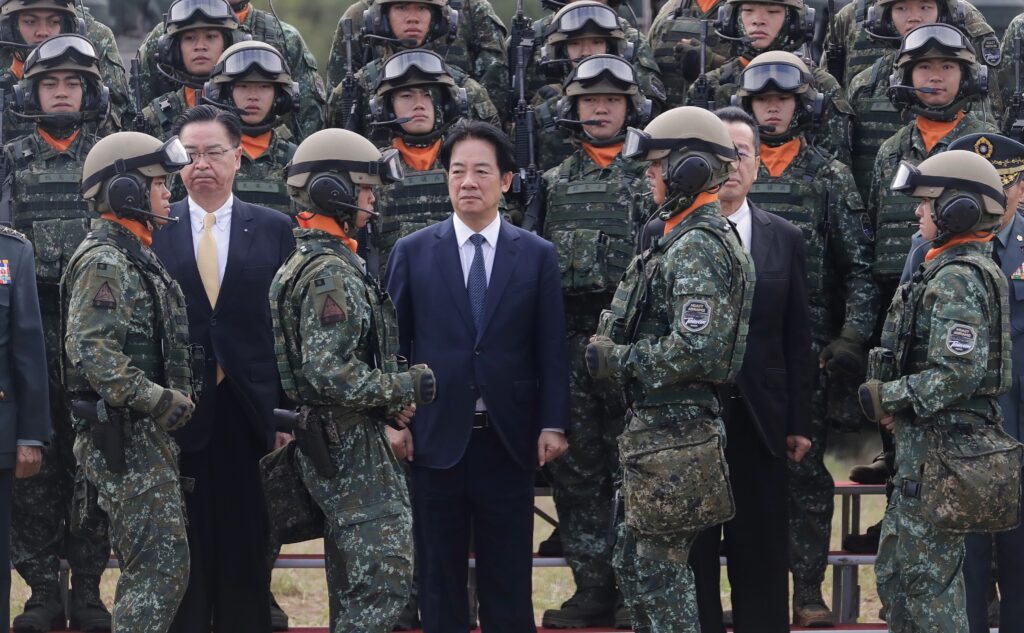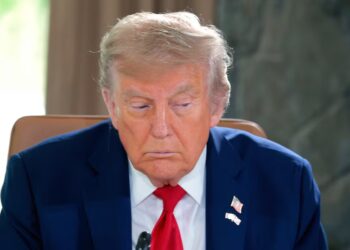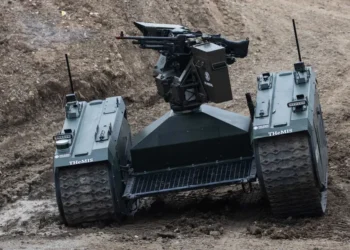Taiwanese President Lai Ching-te announced plans for a “historic” $40 billion supplementary defense budget Wednesday, saying that China’s unprecedented military buildup required it to join U.S. allies and partners in the Asia-Pacific in spending more to deter Chinese aggression.
The proposal includes upgrades to Taiwan’s air defenses, integration of artificial intelligence into military command systems and investments in domestic production of weapons to take place between 2026 and 2033.
“Among all the possible scenarios for China’s annexation of Taiwan, the biggest threat is not force — it is our own surrender,” Lai said at a news conference Wednesday.
This comes amid heightened tensions over Taiwan, with China reacting angrily to a statement by Japan’s new prime minister that suggested Japan may intervene militarily in a war over the self-governing island that Beijing considers part of its territory.
The American Institute in Taiwan, the de facto U.S. embassy, welcomed the defense budget proposal. “The United States supports Taiwan’s rapid acquisition of critical asymmetrical capabilities needed to strengthen deterrence,” AIT director Raymond Greene said in a statement.
Beijing has dramatically increased its aggression toward Taiwan in recent years. The Chinese Communist Party has never ruled the island but leader Xi Jinping has made it a top priority to “reunify” it with China.
It has taken particular aim at Lai, who Beijing considers a “separatist.”
Lai previewed his plans in an opinion piece published in The Washington Post Tuesday.
“This landmark package will not only fund significant new arms acquisitions from the United States, but also vastly enhance Taiwan’s asymmetrical capabilities,” he wrote. “In doing so, we aim to bolster deterrence by inserting greater costs and uncertainties into Beijing’s decision-making on the use of force.”
Lai said that he wanted to increase Taiwan’s defense budget to 5 percent of gross domestic product by 2030.
It has doubled in recent years and is expected to rise to 3.3 percent of GDP by next year, so the additional spending would represent “the largest sustained military investment in Taiwan’s modern history.”
Elbridge A. Colby, undersecretary of defense for policy, said at his confirmation hearing in March that Taiwan’s defense budget should be 10 percent of its gross domestic product
Lai also heaped praise on President Donald Trump, saying Taiwan was “grateful” he had “made clear the importance of American leadership around the world.”
“The international community is safer today because of the Trump administration’s pursuit of peace through strength,” Lai wrote.
The post Taiwan plans to spend $40 billion on U.S. arms, increase defense budget appeared first on Washington Post.




